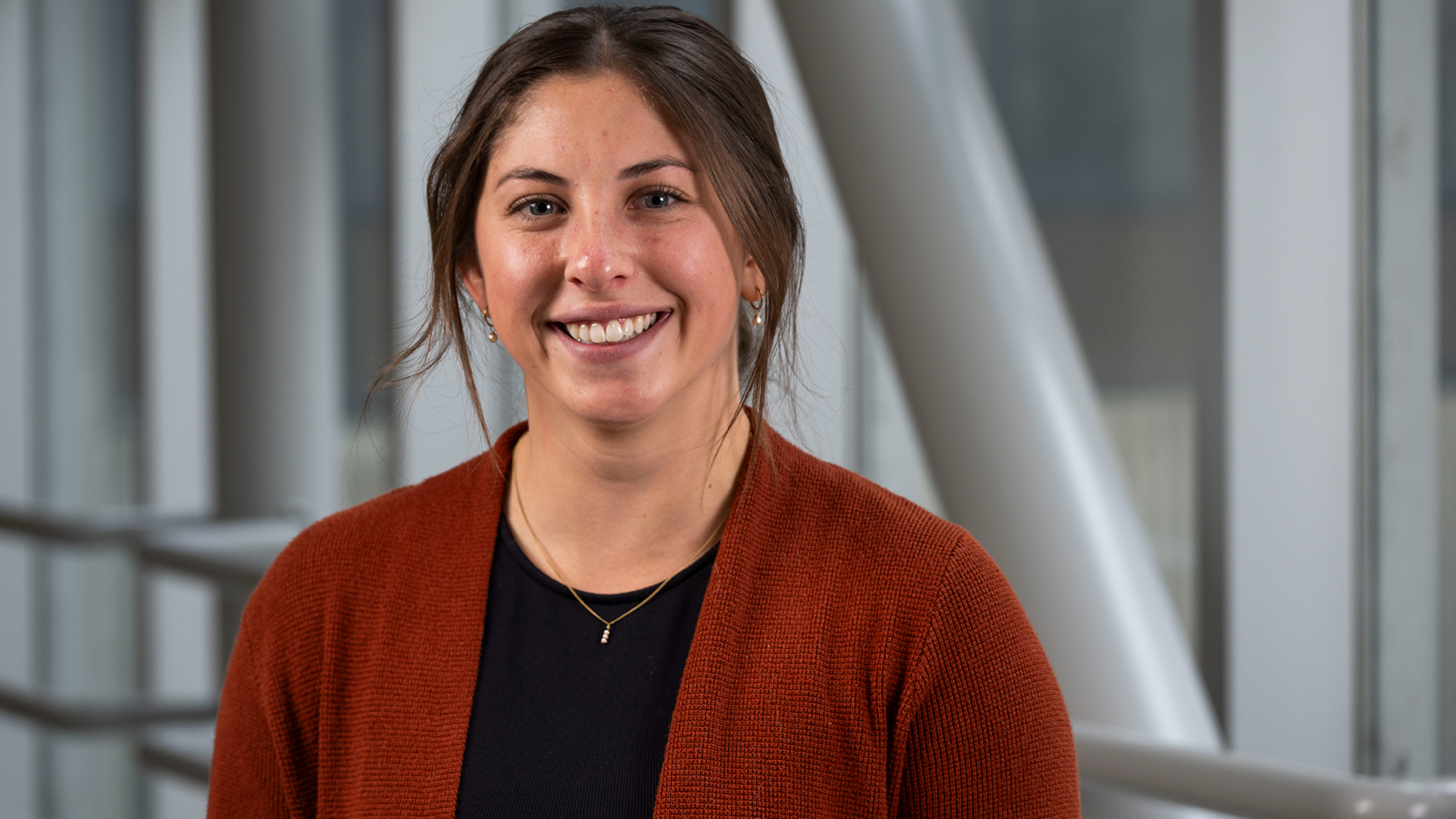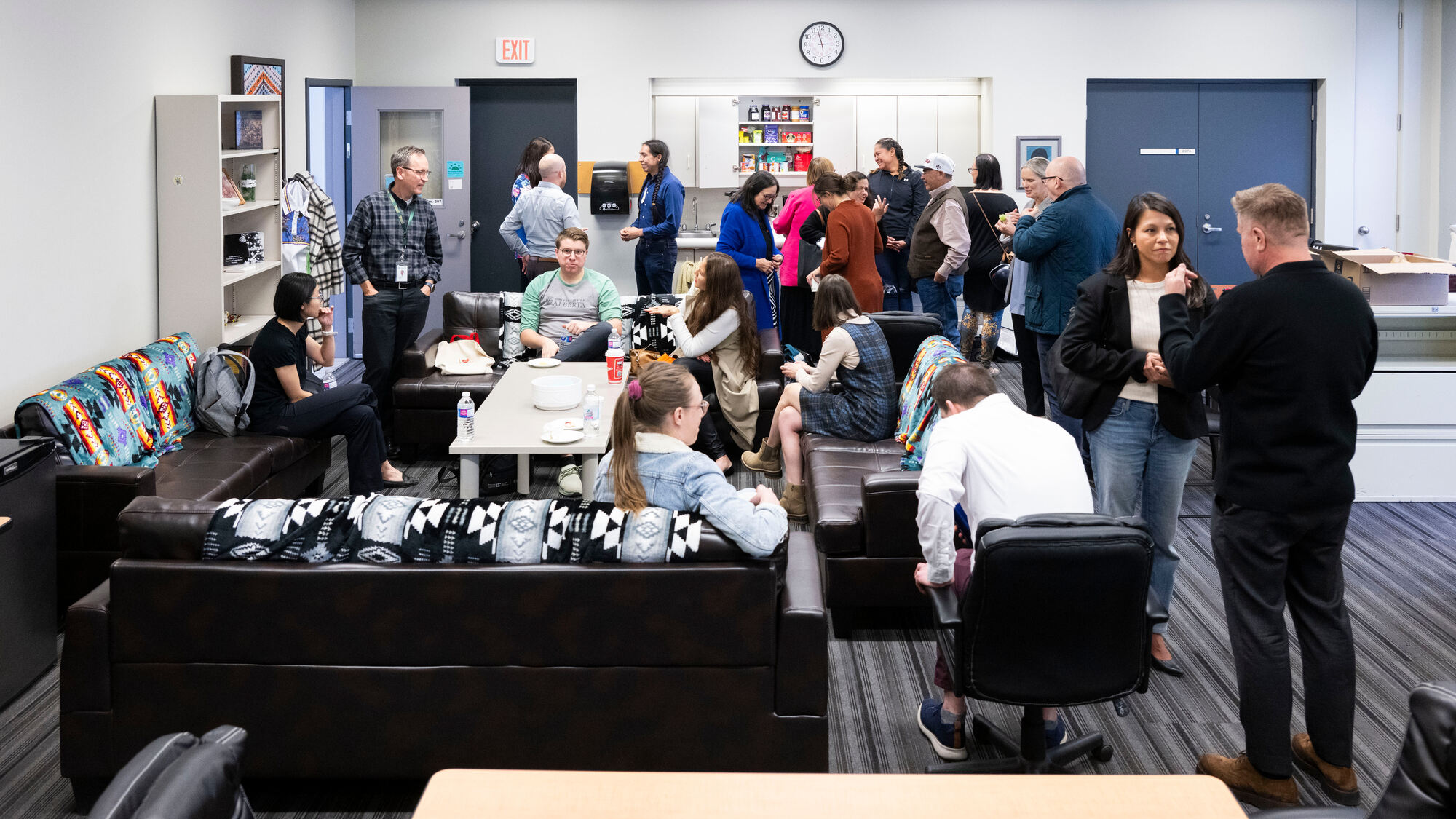Advancing Indigenous Health
9 May 2024

Ashley Turner, president of the Indigenous Medical and Dental Students' Association.
Métis student Ashley Turner started playing soccer when she was four years old, and began dreaming of medical school when she was in Grade 4. Those two passions would bring her to the University of Alberta where she entered the Faculty of Science in 2017 and eventually became starting goalkeeper for the Pandas varsity soccer team.
Today, Ashley has not only achieved her dream of attending medical school, but she is also the president of the Indigenous Medical and Dental Students' Association. Her path to success has not been easy, having had to balance 30 hours of soccer practice a week, studying for exams, and maintaining a top-notch GPA. But she credits the support of donors for helping her reach her goals.
One of those donor supports came in the form of the Wâpanachakos Indigenous Health Program (WIHP). Since 1988, WIHP has been helping First Nations, Inuit and Métis students gain access to, and graduate from, Faculty of Medicine and Dentistry programs. Donor funding, including the Wâpanachakos Indigenous Health Initiative Endowment, makes the program possible, providing opportunities to students like Ashley to advance Indigenous health.
This past year, WIHP celebrated the grand opening of its new space, with Ashley in attendance. The new space is dedicated to the late Darcy Tailfeathers, a young medical student from the Kainai Nation who was tragically killed in an automobile accident in the third year of his studies. He would have been the first First Nations graduate from the Faculty of Medicine.

Attendees mingle at the grand opening of the Wâpanachakos Indigenous Health Program.
Thanks to an endowment created by friends and members of the Tailfeathers family, the Darcy Tailfeathers Memorial Award was established to support Indigenous medical students. Ashley was named a recipient of the award for her commitment to her studies, her athletics and her Métis heritage.
Donors like Gerry and Barb Sinn understand the importance of supporting future leaders like Ashley in rural and Indigenous health. Longtime supporters of the U of A, the Sinns have been giving for the past 40 years, including a generous donation to the WIHP that created the program’s first endowment in 2021.
“If we can have a small part in improving health care for Indigenous people, that’s all we would hope for.” — Barb Sinn
“We wanted to help the faculty break down some of the barriers Indigenous communities face,” says Gerry. “People from all communities should have trust in the health-care professionals they are coming to see. We thought we could play a small part in helping move that mandate forward.”
Ashley is grateful to donors like the Sinns and the many other generous supporters of the WIHP for helping her to achieve her academic goals while also empowering Indigenous communities. She explains how her family lost their connection to their Métis culture, but that her journey into celebrating her Métis heritage blossomed when she entered university.
Donor Impact
130+
Indigenous medical students have been part of the program
1988
WIHP was founded